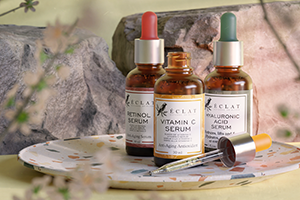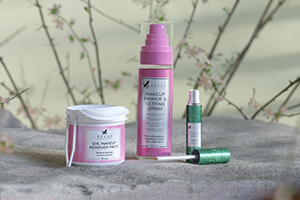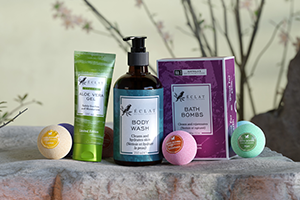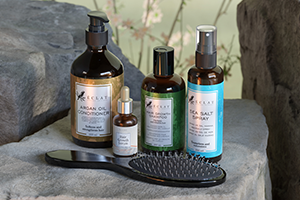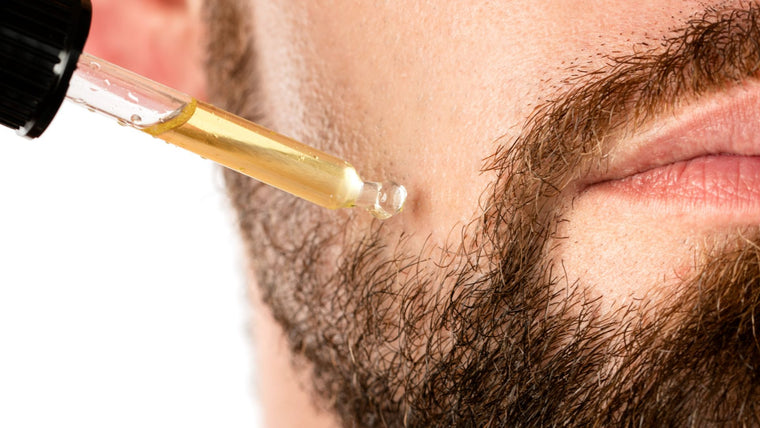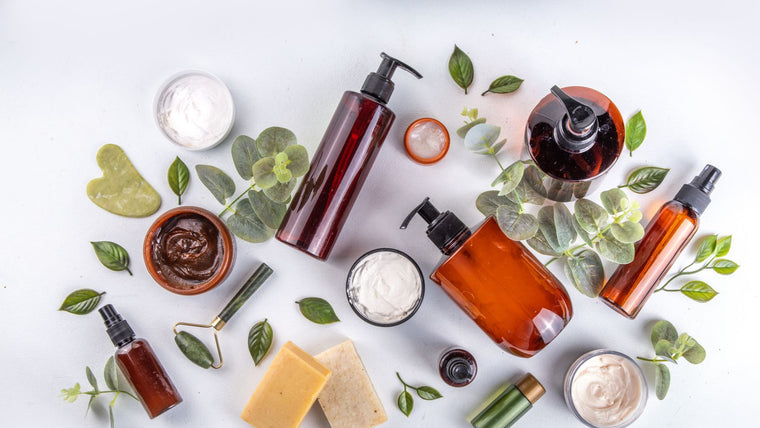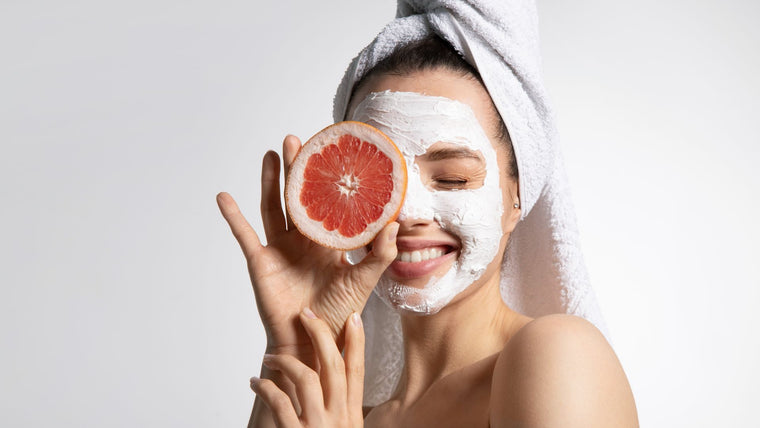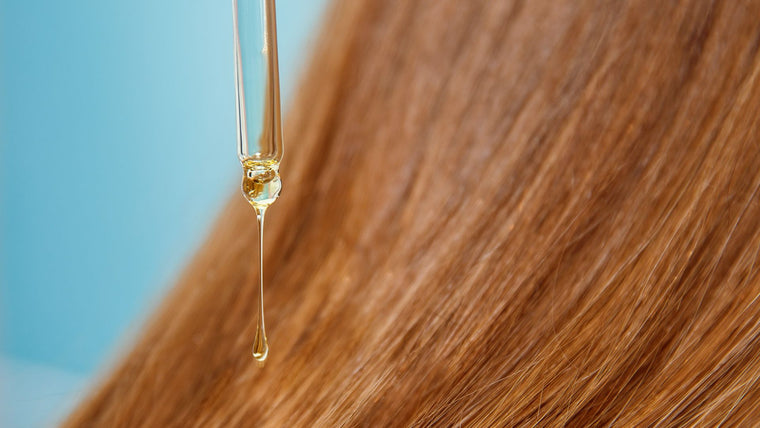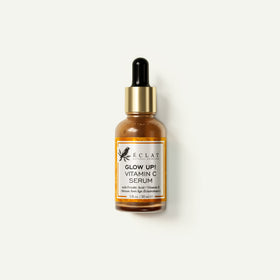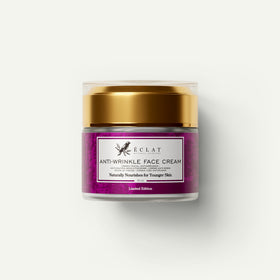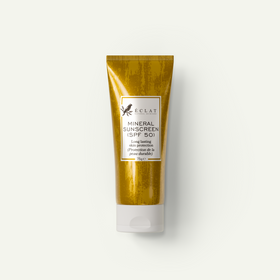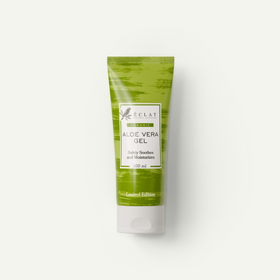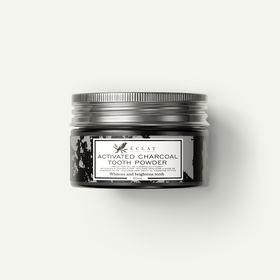Struggling with Your Skincare Routine Order? Read Our Step-by-Step Guide
- 10/07/2023

How do you apply your favorite skincare products? And, more importantly, which order do you apply them in? Do you follow the same steps both morning and night?
You don't need to have a complicated 12-step routine to feel the confusion here. With new skincare releases and niches emerging on a near-daily basis, it's easy to get stuck on how to integrate your newest obsession into your beauty rotation.
As self-confessed beauty geeks, it only felt right for us to dig deeper here and uncover the ideal skincare routine order for you, regardless of your skin type and needs. So whether you have oily skin, dry skin, or something in between, we're here to help with this step-by-step guide on how to wear and layer your products.
Why the order of your skincare routine matters
If you've ever wondered if skincare routine order really means anything, the short answer is: yes. Board-certified dermatologist Dr. Hadley King says that the general rule of thumb is to "go from the lightest products that are most absorbed progressively to heavier products."

The logic here is that thinner skincare products aren't able to penetrate past the thicker ones. As an example, applying your favorite feather-weight hydrating serum after moisturiser would be a waste.
So if you're spending a lot of money on such products, knowing the correct order to apply them in is the key to brighter, smoother skin, without disappointment.
Correct skincare routine order: the basics
Keeping the thin-to-thick rule of thumb in mind, here's a quick breakdown on how to make the most of your skincare regimen, morning and night.
Morning skincare routine steps
- Cleanser
- Toner
- Serum
- Eye cream
- Spot treatment
- Moisturizer
- Face oil
- SPF
Evening skincare routine steps
- Cleanser/makeup remover
- Toner
- Serum
- Eye cream
- Spot treatment
- Moisturizer
- Retinol
- Face oil
You'll have noticed some slight differences there, and that's because your daytime skincare routine is catering to different needs than your nighttime skincare routine. Mornings are all about waking your face up and prepping it for everything the day might bring, while evenings are the time to remove makeup and set your skin up for restoration during sleep.
Now that we've covered the basics, we'll talk you through the ins and outs of the products you'll need to build the perfect skincare routine for your skin type.
Cleanser
Use: In the morning and evening
Is there anything more satisfying than freshening up a sleepy face? We think not. Start your day on the right note with the perfect facial cleanser for your skin type.
If you have sensitive skin, look for a gentle cleanser with effective but complexion-kind ingredients, like aloe vera, that won't disturb your skin's barrier. Dry-skin peeps will appreciate a rich cream or oil cleanser that doesn't strip moisture from the skin's surface. Meanwhile, those with acne-prone or oily skin will prefer refreshing gel or foaming cleansers.
Come evening-time, you'll want to "take the day off" by double cleansing your way to clean skin. This is especially important if you wear makeup. Choose a cleansing oil (or an oil-based cleanser) as the first step to remove any cosmetics, SPF, leftover product, and general grime from the skin. Then, after patting your face dry, go in with a cleanser that's tailored to your skin type—i.e. the one you use in your morning regimen.
And in case you were wondering: it's totally fine to use cleansing oil on oily skin. In fact, it can actually help to balance out your natural sebum levels, leaving you with a more matte complexion overall.

Suggested products:
Toner
Use: In the morning and/or evening
Toner is much more than it used to be. Once lumped to the bottom of the priority list and seen as unnecessary, it's now a much-valued addition to any skincare routine. The new generation of toners is powered by potent ingredients that slough away dead skin cells, absorb excess oil, and brighten skin.
If you have specific skin concerns, such as breakouts, oiliness, blackheads or acne scars, AHA (e.g. glycolic acid or lactic acid) or BHA (e.g. salicylic acid) chemical exfoliants will help to clean and brighten your complexion at this step in your regimen.
The other choice here (if you choose to use toner at all—it's an optional step) would be to go with an "all-rounder" toner that's suitable for all skin types, including sensitive skin. Simply add some to a cotton pad then swipe it over your face.
Suggested products:
Serum
Use: In the morning and/or evening
Serums, another optional step, benefit all skincare routines and contribute toward balanced, healthy skin. If you were going to choose between a toner and a serum, we'd suggest the latter because you'll get a stronger hit of key ingredients—whether that's brightening vitamin C, hydrating hyaluronic acid, or another active ingredient that suits your needs.
For the mornings, we recommend an antioxidant serum to boost your glow, balance your skin tone, and fight signs of aging—including pesky fine lines. These work on pretty much all skin types, but tread carefully and build up your tolerance if you have sensitive skin.

Alternatively, you could try a moisture-boosting serum if you have dehydrated skin, or a purifying, oil-balancing option if you're acne-prone. Use these either morning or night.
Suggested products:
Eye cream (or serum)
Use: In the morning and/or evening
If you're dealing with fine lines and other signs of aging, a solid eye cream or serum will bring you the moisture and collagen boost that you need, all perfectly tailored to the sensitive skin in that area, which is thinner than that on the rest of your face. Eye creams aren't just good for wrinkles alone: they'll also help to reduce the appearance of dark under-eye circles, and will smooth out any dry skin.
Suggested products:
Spot treatment
Use: In the evening (ideally)
Anyone who wants to treat acne can benefit from a spot treatment, used as and when a problem blemish flares up. These formulas will do their hardest work when they're applied overnight to acne-prone skin. That's when your skin goes into repair mode (plus, when you're asleep, there's no temptation to pick at the offending zit).

However, if you're using retinol in the evenings, you won't want to mix so many powerful actives together, as this can cause redness and patches of dry skin. Be extra careful with these targeted skincare products if you have more sensitive skin, and try to apply the smallest amount of product to avoid irritation.
Look out for acne treatments with active ingredients like benzoyl peroxide, salicylic acid, and sulphur. They'll take down breakouts, loosen clogged pores, and help to mattify oily skin.
Moisturizer
Use: In the morning and evening
Any dermatologist will tell you that keeping skin hydrated is key. Having a good moisturizer (or two) in your regimen will strengthen your skin barrier, balance your natural oils, and prevent dry skin and signs of aging. What's not to love?
If you have oily or acne-prone skin, keep an eye out for lightweight moisturizers that won't trigger any upset or feel greasy. If you instead fall under the category of sensitive or dry skin types, go for moisturizing products with ingredients like hyaluronic acid, colloidal oatmeal, lipids, and collagen.
You can use the same moisturizer in both the morning and evening, but a night cream is another option if your skin is super dry. The only difference between regular moisturizer (or "day cream") and night cream is that the latter is extra rich.
Suggested products:
Retinol
Use: In the evening
Retinol, a.k.a. vitamin A, is the most commonly known member of the retinoid family. It's one of the best ingredients you can use to tackle wrinkles and dark spots. It speeds up the production of new skin cells, and this regeneration process makes skin look more youthful, even-toned and clear.

Retinoids cause sun sensitivity, so it's important that you don't apply them in the morning. Use them in your evening skincare routine, and make sure that you use sunscreen the following morning to shield your skin from UV rays.
As is the case with all powerful active ingredients, retinol might not sit so well with those with sensitive skin types. It can be drying and irritating. Our advice? Try to build up your retinol tolerance slowly, starting with just a pea-sized amount one night per week before gradually increasing the quantity over the course of 4-6 weeks.
Suggested products:
Facial oil
Use: In the evening
Using skincare in the correct order is especially important when face oil is concerned. No other products can penetrate it, so it should always come last.
Face oil isn't necessary in every routine, but it's worth giving a go as there are so many to choose from, each with different active ingredients to suit different skin issues—from tea tree and peppermint oils for blemishes to jojoba and argan oils for dryness.
Suggested products:
SPF
Use: In the morning
SPF is one skincare step that you definitely can't skip. Whether you prefer mineral or chemical sunscreens, effective sun protection is the key to keeping your skin defended from aging, sunburn and dark spots—as well as more serious issues, like skin cancer—caused by UV rays.
Aim for SPF 30 and above on your face, even if it's a cloudy day. With modern sunscreen formulas able to sink in quickly without any stickiness, lingering odor, or white cast, there's no excuse to drop the ball on this one.

Suggested product:
Summary
Skincare can be complicated but, to get the most out of your regimen, it's worth understanding how each product works with your skin. So congratulations for reaching the end of this article: you're now fully in the loop about how to apply your routine correctly! We wish you many good skin days ahead.
Recommended Products


